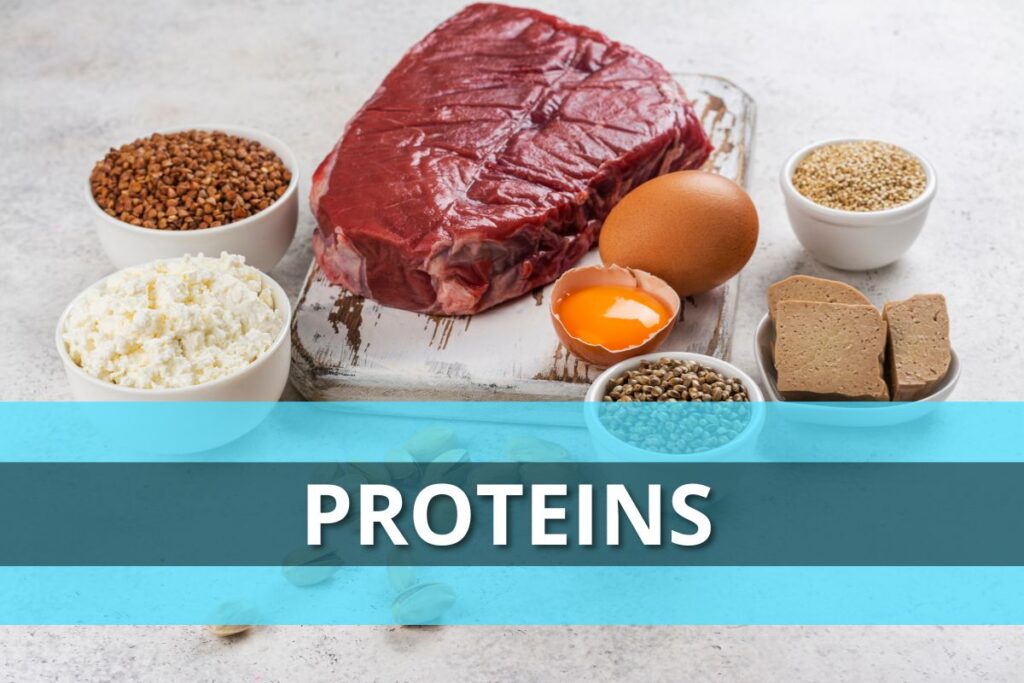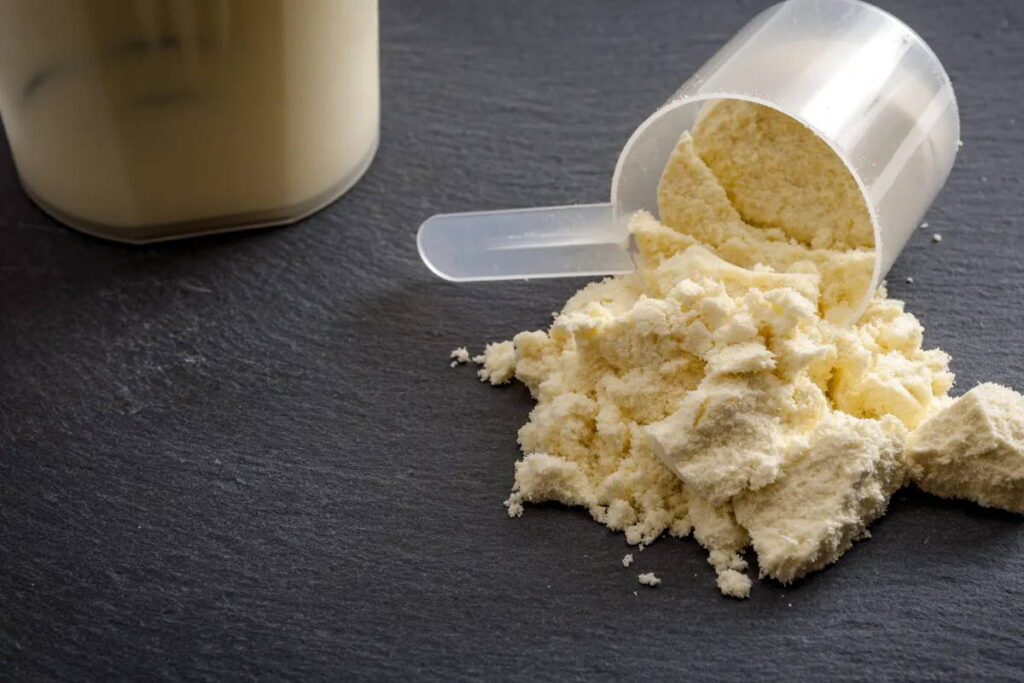Proteins
Author:
Unlock your full potential by engaging with our experts and community! Have questions about your fitness journey or looking for expert advice on weightlifting techniques? Don’t hesitate — leave a comment below and Sergii Putsov will provide a personalized answer and insights to help you reach your goals.
Torokhtiy is reader-supported. Some links are affiliate links, and we may earn a commission at no extra cost to you. See our disclosure page for details.

Protein is the most valuable macronutrient. It’s main function is the construction of our body and it is especially important for athletes who train intensively.
The breakdown of protein into enzymes (pepsins) takes place in the stomach, where they are absorbed in the form of amino acids in the small intestine. From here, they get into the bloodstream and build our muscles, participate in the formation of enzymes, transfer important vitamins and minerals and form our immune system (the formation of immunoglobulins). The ideal combination of protein intake is to get it from both plant and animal sources! In general, however, it does not matter from which source the athlete receives the protein. That won’t affect the structure of the muscle tissue at all – if the amount of protein is sufficient.
Protein standards are revised by the American Dietetics Association annually. And scientists have recently come to a conclusion that there is no need for too much protein. The optimal intake for athletes and weightlifters is 1.5 to 2 g/ kg per day.
Of course, there has always been the opinion that it is necessary to consume 3 to 4 g/ kg, and that somehow it affects the work of your kidney and liver. Recent research suggests the opposite – for healthy athletes, the amount of protein does not affect the function of these organs.
You may like it:

The myth that only 30 grams of protein will be absorbed for each meal is just a myth! Protein will be assimilated, this process just takes time! Of course, it is important to have a good set of enzymes and a strong gastrointestinal tract, otherwise there may be unpleasant symptoms in the form of flatulence and bloating.
The amount of protein products taken daily does not affect the synthesis of protein in the body. Only the total amount which an athlete consumes within 24 hours matters.
If your diet is balanced and the intake of protein is optimal, there is no need for additional protein sources in the form of protein powder or amino acids of the BCAA type.
Is it possible to eat protein and not get fat?!
Although it would be impossible to say you can eat as much protein as you want and not get fat, eating protein is reasonable when you do not overeat it – leaving room, of course, for your daily calorie intake! Otherwise, your body will spend all of its resources on the breakdown of this protein, and your consumed carbohydrates and fats will remain intact. In fact, this is where your weight gain comes from! (Or should we say, your fat gain).
In light of what is written above, protein is a very important component in the construction of not only quality muscle mass, but also a valuable component in letting your body feel full for a long time. It is vital in the formation of adequate health for an athlete.
You might be interested in:
Why Trust Us?
With over 20 years in Olympic weightlifting, strength training, nutrition coaching, and general fitness our team does its best to provide the audience with ultimate support and meet the needs and requirements of advanced athletes and professional lifters, as well as people who strive to open new opportunities and develop their physical capabilities with us.
By trusting the recommendations of our certified experts in coaching, nutrition, and sports training programming, as well as scientific consultants, and physiotherapists, we provide you with thorough, well-considered, and scientifically proven content. All the information given in the articles concerning workout programming, separate exercises, and athletic performance, in general, is based on verified data.
The product testing process is described in more detail here.
Author: Sergii Putsov
Head of Sport Science, PhD
Best Results: Snatch – 165 kg,
C&J – 200 kg
Sergii Putsov, Ph.D., is a former professional weightlifter and National team member, achieving multiple medals in the 94 kg weight category at national competitions. With a Master’s degree in “Olympic & Professional Sport Training” and a Sport Science Ph.D. from the International Olympic Academy, Greece, Sergii now leads as the Head of Sport Science. He specializes in designing training programs, writing insightful blog articles, providing live commentary at international weightlifting events, and conducting educational seminars worldwide alongside Olympic weightlifting expert Oleksiy Torokhtiy.




Still have questions after reading our article? Unlock your full potential by engaging with our experts and community! Don’t hesitate — leave a comment below and Sergii Putsov will provide a personalized answer and insights to help you reach your goals.